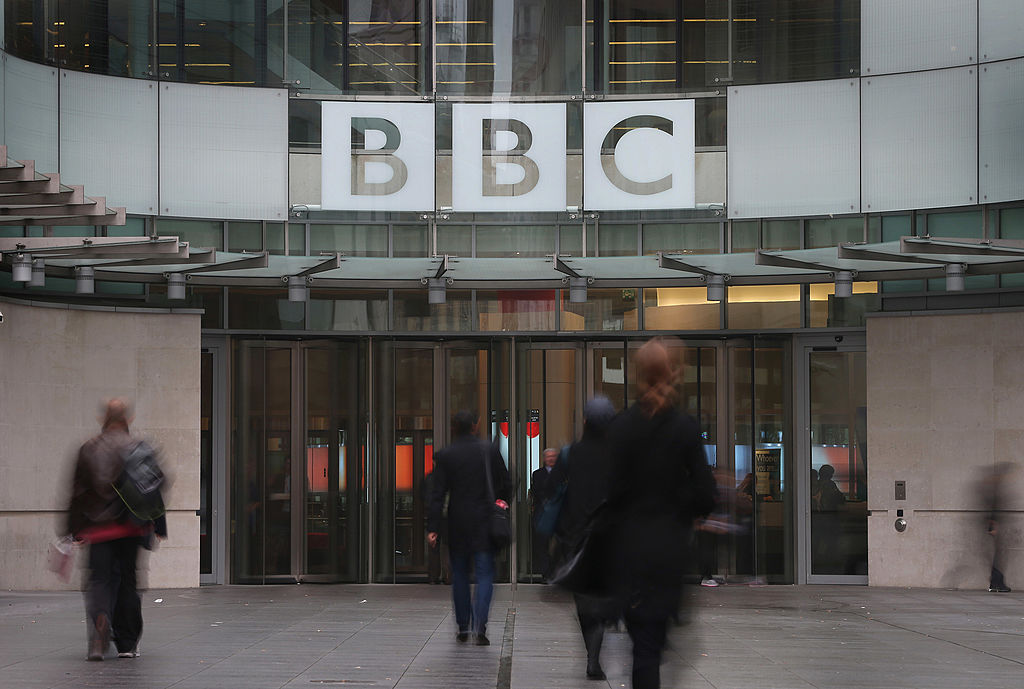Being a senior BBC executive has never been a guaranteed route to national affection, but the past few weeks have been particularly bruising for director-general Tim Davie and his leadership team. The Gary Lineker affair didn’t please anyone – the presenter’s supporters railed against what they saw as a politically inspired move against him, while advocates of impartiality felt that the BBC caved in when they came to an interim settlement. Then choirs worldwide, and the classical music community in the UK, rose in protest at the decision to axe the BBC Singers just before their centenary; a decision now wisely ‘paused’. Around the country, the BBC’s local radio and regional television staff have been on strike in protest at cuts to their services.
Many BBC rows blow up unexpectedly, but there is an expectation inside the corporation that another brouhaha is inevitable next month when the BBC News Channel is fully merged with its global television operation. Which prompts the question: is the world’s best-known public broadcasting organisation losing the ability to communicate its purpose to its audiences and its staff?
Unhelpfully, the position of the corporation’s chairman Richard Sharp is in limbo. We still await the government’s review of his appointment, which has been tainted by knowledge of the extent of his friendship with Boris Johnson. It is a simple fact that Sharp cannot do the job long-term. He is supposed to represent the interests of the licence-fee payers, yet he has been noticeably absent from its recent controversies. Replacing Sharp with a new chairman would be a blessing for the BBC, but its problems run deeper than that.
Many of them stem from the tight financial settlement imposed by the government, which meant no increase in the licence fee for two years. The BBC seems to have taken a decision that it didn’t want to offer an endless narrative of cutbacks, but it has run into bother because it has described the changes it is making as improvements when they are patently not. The press release announcing the end of the BBC Singers began by hailing the new classical music plans as a ‘strengthening’ of public purpose, and the BBC chief content officer Charlotte Moore said ‘this new strategy is bold, ambitious, and good for the sector and for audiences who love classical music.’ This was greeted by hoots of derision from precisely those audiences when they saw it involved the loss of the Singers and axing 20 per cent of the BBC’s orchestral musicians. The retreat, announced on Friday, was inevitable. Local radio listeners still face the loss of some of their favourite programmes, and don’t seem to have been cheered up by a promised ‘reprioritisation’ towards online news.
The bar has been set high for the merged television News Channel. A BBC spokesman told the Telegraph last year ‘rather than running two parallel TV news channels, we’ll have one, better, channel, with the trusted high-quality news people expect from the BBC.’ But news staff – including some of the senior folk – think that ‘better’ is undeliverable. There will be less UK-focused news on television, and fewer stories from the nations and regions. It is at least 20 years ago that we looked at these kind of merger plans when I was head of television news, and it is extremely hard to serve audiences in Newcastle and New York with the same fare. The promised opt-outs for UK breaking news are described by insiders as ‘beyond parody’, with the supposedly market-leading BBC reduced to the kind of technical operation associated with GB News.
What is common to these recent events is a failure to consult properly or to explain. BBC Sport staff clearly didn’t understand the impartiality guidelines they’re expected to uphold. Classical music stakeholders were united against plans that were supposed to usher in a new golden age for them. In the near future, MPs may be surprised to emerge from a cliffhanging vote at Westminster to find that only Sky News is covering the reaction live, while the BBC’s ‘better’ channel is preoccupied with international content. And it’s reasonable to ask where the BBC’s unitary board has been in all this. Did they approve the classical music plans? Was there any risk assessment about the damage to the corporation’s reputation by getting rid of the Singers for a comparatively small saving?
There are signs that Tim Davie himself gets the need for a reset. The reprieve for the Singers shows the wind is changing direction. I would expect to see greater care for opinion formers in the coming months, and the reining in of executives who put audience numbers ahead of reputation. Both are important, of course, but the corporation needs friends who can advocate its case with confidence. That is vital because the biggest decisions are yet to come.
The government said the current licence fee settlement would be the last, and alternative means of financing are being considered. BBC traditionalists are alarmed by recent board appointments which suggest a push towards the commercial – not just from chairman Sharp but from deputy chairman Sir Damon Buffini. There has been some modelling of a hybrid subscription model for future funding.
It is understandable that the BBC needs to be ready for all eventualities, but if it struggles on some of the day-to-day crises then it is hard to see how it can bring the country with it on the most radical change in its history. There is still the hope that something might turn up, and that the licence fee will live again; we’re not yet at the point when we can say that the BBC is in an existential crisis. But for the inhabitants of W1A it could be uncomfortably close.






Comments